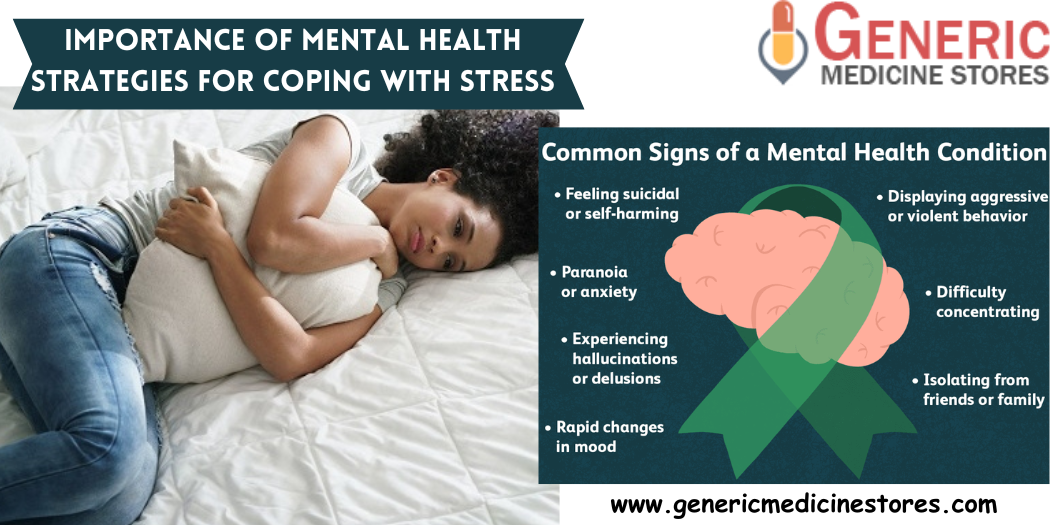The Role of Nutrition in Managing Depression and Anxiety
Let us know the topic in detail by breaking it into several points. Also, we will learn how food is directly related to our mood. Keep reading the blog to know and clear all your questions.
Introduction to Depression and Anxiety
In today’s society, anxiety and depression are widespread mental health concerns that can significantly impact an individual’s emotional and functional well-being. These conditions can present a range of obstacles that make it challenging for individuals to cope with their daily lives.
Depression and anxiety disorders frequently coexist, despite being distinct conditions. The root causes of these disorders can stem from various factors such as nutritional, psychological, physical, emotional, environmental, social, and spiritual triggers, genetic predispositions, or brain diseases.
It is common for individuals who have depression also to experience symptoms of anxiety such as nervousness, irritability, and difficulty sleeping. Similarly, those who suffer from anxiety may also experience depression and feelings of low energy or disinterest in life. The severity of symptoms can vary significantly among those with anxiety or depression, with some only experiencing mild symptoms while others may have debilitating anxiety attacks or severe depression. Additionally, symptoms may fluctuate, with periods of relief followed by difficult episodes.
The Link Between Nutrition and Mental Health
Since childhood, we’ve been taught that eating healthy is crucial for physical wellness and appearance. However, we often overlook that good nutrition significantly affects our mental health. A balanced diet boosts cognitive abilities, increases alertness, and improves concentration and attention span. Conversely, a deficient diet can cause exhaustion, hinder decision-making, and slow reaction time. An unhealthy diet can worsen and sometimes even trigger stress and depression.
A significant health issue is our dependence on processed foods loaded with flour and sugar. These foods create a desire for more than nutrient-dense options like fruits and vegetables. Many processed foods are addictive and activate the pleasure and reward centers in the brain, which are linked to dopamine. To stop craving unhealthy foods, you need to avoid eating them. Removing added sugars and refined carbs from your diet can alter your brain’s function.
It is important to note that there is a correlation between nutrition and mental well-being. Nutrient deficiencies and an unhealthy diet high in processed foods, sugar, and unhealthy fats can contribute to developing and worsening mental health conditions. A balanced diet is crucial for optimal brain function and emotional well-being.
Nutrients That Help Manage Depression and Anxiety
Hopefully, the topic and relation between nutrients and depression or anxiety have cleared. But many of you don’t know what diet and nutrients you should follow to boost your health and eliminate anxiety or depression.
Regarding prioritizing my mental health, consuming nutritious foods is equally essential as getting sufficient sleep.
You must remove gluten, dairy, caffeine, and sugar from your diet. Additionally, you have been incorporating fresh produce into my daily meals and have committed to visiting the grocery store more frequently. As a result, you will notice an improvement in your emotional resilience and a decrease in susceptibility to stress and its effect on your mood. Here are some daily foods you should consume to promote wellness and provide your body with the necessary nutrients to combat brain inflammation, which can lead to depression.
Dark leafy greens
If one had to select the healthiest food of all, the most nutrient-dense item available, it would undoubtedly be dark, leafy greens – with spinach being the top contender as an inflammation fighter.
Walnuts
Did you know walnuts are a great plant source of omega-3 fatty acids? Studies have shown that these fatty acids can help support brain function and reduce symptoms of depression.
Berries
For breakfast, I like to have a mix of blueberries, raspberries, strawberries, and blackberries, as they contain high levels of antioxidants. A study published in the Journal of Nutritional and Environmental Medicine found that patients who were treated with antioxidants for two years had a lower depression score compared to those who took placebos. Antioxidants act as DNA repairmen by repairing cells and preventing cancer-related illnesses.
Mushrooms
There are many compelling reasons why incorporating mushrooms into your diet can benefit your mental well-being. Firstly, their chemical makeup counteracts insulin, which assists in regulating blood sugar levels, leading to a more stable mood.
Additionally, mushrooms have probiotic-like properties that help foster a healthy gut microbiome. Considering that most of our body’s serotonin, an essential neurotransmitter that influences our mental state, is produced by nerve cells in our intestines, we must prioritize our gut health.
Tomatoes
Did you know that tomatoes are rich in folic acid and alpha-lipoic acid? Recent studies published in the Journal of Psychiatry and Neuroscience have shown that these nutrients can help combat depression. Research has found that up to one-third of depression patients have a folate deficiency.
Folic acid is essential because it can prevent an excess of homocysteine from forming in the body, limiting the production of crucial neurotransmitters such as serotonin, dopamine, and norepinephrine. Meanwhile, alpha-lipoic acid is often mentioned in nutrition and brain health discussions. I’ve even started taking it as a supplement because it helps the body convert glucose into energy, which can help stabilize mood.
Beans
I’ve always enjoyed eating beans. They’re not only delicious but also have numerous health benefits. They’re on the G-BOMB list as they can help manage diabetes and aid in weight loss. Eating beans can positively impact my mood since they are slowly digested by the body, which helps stabilize my blood sugar levels.
I always appreciate food that helps me regulate my blood sugar levels; beans are a friend. I tend to limit my intake of starchy foods, but I make an exception for beans. They’re a great addition to salads and help curb my cravings for bread and other processed grains.
Seeds
When you feel like snacking on potato chips or other comfort foods, opt for a handful of sunflower seeds or any other seed available in the kitchen. According to Fuhrman’s G-BOMBS list, seeds are the ultimate food. Flaxseeds, hemp, and chia seeds are particularly beneficial for mood as they contain omega-3 fatty acids. Additionally, seeds enhance the absorption of protective nutrients in vegetables eaten at the same meal, making them a valuable addition to any meal.
Apples
Eating an apple daily, especially with other nutritious foods, can have numerous health benefits. Apples are rich in antioxidants, much like berries, which can aid in preventing cellular damage and inflammation. Additionally, they contain soluble fiber, which can help regulate blood sugar levels. I enjoy snacking on apple slices with almond butter, providing me with omega-3 fatty acids and fiber.
Foods to Avoid for Better Mental Health
However, in the above paragraph, we have discussed the foods that can help to overcome anxiety or depression. But not all foods are appropriate to take during the problem and regularly. Because they can irritate and trigger your body and make it feel low.
Here are some of the foods that you should avoid;
Many processed foods contain excessive amounts of unhealthy fats, sugars, and additives, which can contribute to inflammation and mood imbalances.
Sugary Snacks and Drinks: Consuming excessive amounts of sugar can lead to energy crashes, irritability, and worsen symptoms of anxiety and depression.
Fast Food: Fast food is typically loaded with unhealthy fats, sodium, and artificial ingredients that can affect your mood and cognitive function.
Caffeine: While small amounts can boost alertness, excessive intake can cause anxiety and restlessness and disrupt sleep patterns, which are vital for mental well-being.
Alcohol: Although alcohol might temporarily relieve stress, excessive consumption can disrupt sleep, deplete essential nutrients, and exacerbate symptoms of depression and anxiety.
Remember, a balanced diet rich in whole foods, such as fruits, vegetables, lean proteins, and healthy fats, can support your mental health. Listening to your body and making the best dietary choices is also essential.
Creating a Nutritious Diet Plan for Mental Health
Designing a nutritious diet plan that supports mental health involves incorporating foods rich in nutrients that benefit brain function and mood.
Breakfast: Start your day with a bowl of oatmeal topped with berries and a handful of walnuts. Oats provide complex carbohydrates for steady energy, while berries and walnuts are packed with antioxidants and omega-3 fatty acids that promote brain health.
Snack: Enjoy a handful of almonds or pumpkin seeds for a mid-morning snack. These nuts and seeds contain magnesium, which helps regulate mood and reduce anxiety.
Lunch: Opt for a salad with mixed greens, grilled chicken or salmon, avocado, and colorful vegetables. This meal provides essential vitamins, minerals, and healthy fats that support brain function.
Afternoon snack: Have a piece of dark chocolate containing flavonoids that can improve mood and cognitive function.
Dinner: Enjoy a balanced meal consisting of roasted vegetables, quinoa, or brown rice, and a lean protein source like tofu or legumes.
Evening snack: Sip on a cup of chamomile tea, known for its calming properties.
Everyone has unique dietary requirements. Therefore, seeking personalized guidance from a healthcare professional or registered dietitian is advisable.
Conclusion
Nutrition plays a vital role in managing depression and anxiety. A well-balanced diet rich in whole foods, antioxidants, omega-3 fatty acids, and nutrients supports brain health and helps stabilize mood. Combining proper nutrition with other therapeutic approaches can significantly contribute to mental well-being.






Leave a Reply